Equity, Diversity And Inclusion In Education
Parallel Session
3rd Shaw-IAU Workshop on Astronomy for Education
Session timeblocks
Tuesday Oct. 12, 2021
UTC: 5 p.m. -
6:30 p.m.
America/New_York:
1 p.m.-
2:30 p.m.
Thursday Oct. 14, 2021
UTC: noon -
1:30 p.m.
America/New_York:
8 a.m.-
9:30 a.m.
Schedule
-
Universal Design of Learning in Astronomy Education
Tuesday Oct. 12, 2021
UTC: 5 p.m. - 5:10 p.m. America/New_York: 1 p.m.- 1:10 p.m.Thursday Oct. 14, 2021
UTC: noon - 12:10 p.m. America/New_York: 8 a.m.- 8:10 a.m.The Universal Design of Learning (UDL) is an educational framework that relies on the individual abilities of each student to conduct a successful learning process. UDL is about breaking the barriers (physical, emotional, cognitive) that many students face, in particular those with a disability. In this talk, we will outline some general strategies to develop education resources in Astronomy following the UDL principles along with some examples.
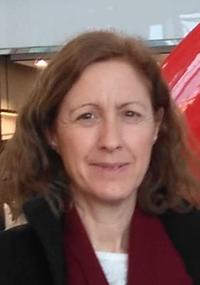
Amelia Ortiz Gil (University of Valencia Astronomical Observatory)
For more information about this talk click here
-
Understanding inclusion and diversity in Planetariums and Observatories to be ready for Schools
Tuesday Oct. 12, 2021
UTC: 5:10 p.m. - 5:20 p.m. America/New_York: 1:10 p.m.- 1:20 p.m.Thursday Oct. 14, 2021
UTC: 12:10 p.m. - 12:20 p.m. America/New_York: 8:10 a.m.- 8:20 a.m.To understand how to contribute with strategies and activities for students and the general public in astronomical observatories and planetariums that constantly receive diverse audiences, from the IAU's motor disability group we conducted a survey that would allow us to understand this situation. We will present the results that we have so far and the conclusions and contributions that we have.
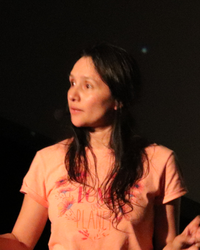
Ángela Patricia Pérez Henao (Planetario de Medellín)
Coauthors: Dimitri Veras, IIhuiyolitzin Villicana
For more information about this talk click here
-
Interculturality and ethnic-racial relations in Astronomy education and communication
Tuesday Oct. 12, 2021
UTC: 5:20 p.m. - 5:30 p.m. America/New_York: 1:20 p.m.- 1:30 p.m.Thursday Oct. 14, 2021
UTC: 12:20 p.m. - 12:30 p.m. America/New_York: 8:20 a.m.- 8:30 a.m.Focusing on Astronomy, I will address some key aspects related to the main challenges and potentials of the science education and communication platforms for the promotion of social justice, equity, diversity and inclusion in Brazil, disentangling not only ethnic-racial and gender issues, but also historical and philosophical elements of science. I will show some ongoing projects, discussing their methodologies and main outcomes.
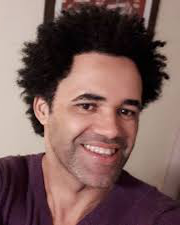
Alan Alves-Brito (Institute of Physics - Federal University of Rio Grande do Sul)
For more information about this talk click here
-
Supporting Neurodiverse Learners for Research Experiences in Astronomy
Tuesday Oct. 12, 2021
UTC: 5:30 p.m. - 5:40 p.m. America/New_York: 1:30 p.m.- 1:40 p.m.Thursday Oct. 14, 2021
UTC: 12:30 p.m. - 12:40 p.m. America/New_York: 8:30 a.m.- 8:40 a.m.We describe the activities and lessons learned from a physics and astronomy research internship program operated by the Frist Center for Autism and Innovation at Vanderbilt University. The program is intended to engage and support neurodiverse learners in research experiences that prepare them for success in university, graduate school, and future research careers. We describe the program goals, outcomes, and tools that have been developed for use by others seeking to increase the participation and success of neurodiverse individuals in astronomy careers.
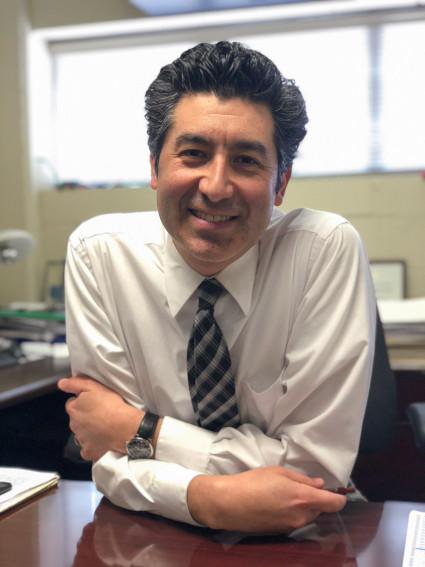
Keivan Stassun
For more information about this talk click here
-
Astronomy and Inclusive Education through project based learning
Tuesday Oct. 12, 2021
UTC: 5:40 p.m. - 5:50 p.m. America/New_York: 1:40 p.m.- 1:50 p.m.Thursday Oct. 14, 2021
UTC: 12:40 p.m. - 12:50 p.m. America/New_York: 8:40 a.m.- 8:50 a.m.Project based learning and inclusive education is a way to promote Astronomy Education, STEAM subjects, to develop skills: critical thinking, problem solving or inter and transdisciplinary approach communication. Teachers and students from all over the country, or world, can work together, supervised by teachers for Sciences, Astronomy, and astronomers by Science, Technology, Arts and Mathematics activities. We would like to present you the way we can teach astronomy using practical and attractive, non-formal methods, linked to outdoor education and CLIL. It is innovative and creative. Children from primary schools can work with secondary and high school students to ensure peer and collaboration learning. In August, we will organise a conference and we wish to present also its results.
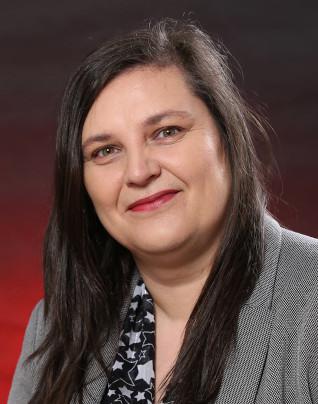
Angelica Minodora Nechifor (CYGNUS Scientific Society, volunteer)
Coauthors: Elisabeta Ana Naghi (Education Ministry)
For more information about this talk click here
-
Discussion Panel: Equity, Diversity and Inclusion in Education
Tuesday Oct. 12, 2021UTC: 5:50 p.m. - 6:30 p.m. America/New_York: 1:50 p.m.- 2:30 p.m.
Thursday Oct. 14, 2021
UTC: 12:50 p.m. - 1:30 p.m. America/New_York: 8:50 a.m.- 9:30 a.m.Chair:
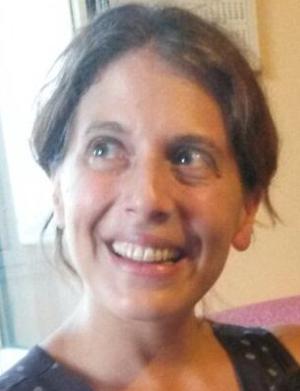
Stefania Varano
Panel: Alan Alves-Brito
(Institute of Physics - Federal University of Rio Grande do Sul), Angelica Minodora Nechifor
(CYGNUS Scientific Society, volunteer), Amelia Ortiz Gil
(University of Valencia Astronomical Observatory), Ángela Patricia Pérez Henao
(Planetario de Medellín), Keivan Stassun
Posters
-
Cazadoras de Estrellas. Astronomy with a gender perspective
Victoria Perez (Universidad de Chile), Natalie Huerta (Scientific Journalist at DirVex FCFM, Universidad de Chile), Pía Cortés (Cazadoras de Estrellas), Daniela Barrientos (Cazadoras de Estrellas), Teresa Valdivia (Cazadoras de Estrellas), Antonia Fernández (Cazadoras de Estrellas), Jennifer Anguita (Cazadoras de Estrellas/Universidad de Chile),, Juanita Antilén (Cazadoras de Estrellas/Universidad de Chile), Magadalena Hamel (Cazadoras de Estrellas/Universidad de Chile)
Cazadoras de Estrellas is an astronomy course for Chilean high school girls, founded in 2018 by female astronomy grad student at the U.Chile. In this course, the girls learn about the astronomy career, programming in Python, and most importantly, the role of women in Astronomy. We include specific moments to talk with them about women in science. We want them to know about our own journeys as astronomy students, and question their own interests and experiences. In this presentation we want to share the importance of an explicit approach to gender problems in Astronomy Education, giving young women space to reflect about this and meet with young female scientists, helping them identify the main problems that women still face when deciding to be scientists.
-
Teaching Astronomy with Culturally Responsive Citizen Science Curricula
Christine O'Donnell (Arizona State University), Peter Smith (Arizona State University), Molly Simon (Arizona State University)
We are developing culturally responsive curricular materials based on Zooniverse projects for general-education college courses. The Zooniverse is the largest online citizen science platform; since launching in 2007, it has supported over 200 projects and connected researchers with over 2 million volunteers worldwide. Our curricular materials improve the teaching and learning of astronomy by guiding students to contribute to ongoing research projects and by empowering students to connect content with their own lived experiences. Students will also practice critical reflection skills and engage in scaffolded dialog about equity and inclusion in astronomy and space exploration. These materials will undergo extensive pilot testing beginning in Fall 2021 before being made publicly available.
-
The past, present and future of Earth and Space Education, and implication for Equity
Christine Hirst Bernhardt (University of California, Santa Barbara; Endeavor STEM Teaching Project)
Astronomy education, particularly in Western Nations, has the potential to disrupt colonial narratives while providing greater access to 21st century skills. Participants will be provided a space to explore the integrations of astronomy to foster and facilitate equity and justice, while connecting to the natural world. Some issues may be personally challenging to address, such as environmental racism and bias. This session will be highly interactive and allow participants to explore the use of satellite imagery to address social justice issues in their region and abroad. Participants will develop their own activities connected to their individual spaces which they can immediately use in formal K-12 education settings.
-
The Urgency and Contribution of the Planetarium in the Development of Astronomy in Rural Areas
Toyib Muchammad (Surabaya Astronomy Club, East Java Amateur Astronomer Communication Forum (FOKALIS JATIM))
A planetarium is a theatre built primarily for presenting educational and entertaining shows about astronomy and the night sky, or for training in celestial navigation. The position of the planetarium in an archipelagic country like Indonesia is very important, especially for people in rural areas to get equal rights in obtaining education and access to technology. With a planetarium that is easily accessible, it certainly allows the public to observe celestial objects together and gradually get scientific information to bring them closer to science, especially astronomy, using fun, interesting, and engaging activities. Through this process, the existence of a planetarium has become a potential tool for community building in various regions and even rural areas in Indonesia.




